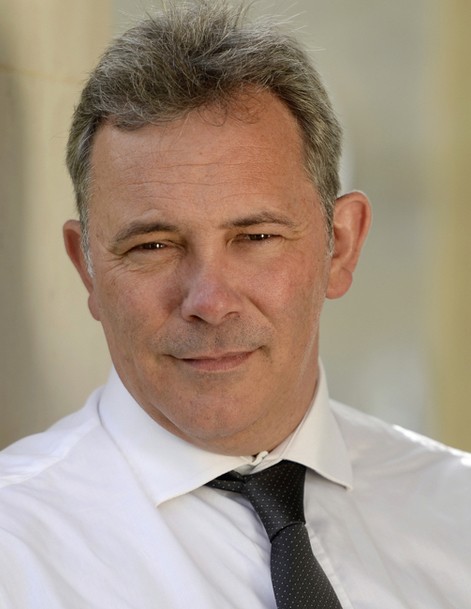State aid today is part of the political landscape in a way it has not been since the Second World War. The idea of a Conservative government re-nationalising the railways under emergency measures and paying 80% of salaries for 7.5 million people to stay at home would have been unthinkable just months ago.
Yet Chancellor Rishi Sunak has just extended the furlough scheme to the end of October. In the wake of coronavirus, what kind of role might financial mutuals large and small play in bringing stability and security back to an economy and millions of people changed forever by this terrible pandemic?
Martin Shaw is chief executive of the Association of Financial Mutuals, the trade body representing mutual and not-for-profit insurers, friendly societies and other financial mutuals across the UK with 30 million policyholders in the UK.

“We don’t automatically assume the virus and ensuing recession and upheavals are necessarily pointers to a renaissance in mutuals,” he says. “Over the last few weeks large parts of the UK economy have been transferred from the private to public sector with significant state aid and it is not clear how the government is planning to dispose of assets it has recently acquired like the railways. It is also the first time ever UK government has intervened to pay people to not work.”
He believes large parts of the economy could continue under public ownership while some may be offloaded back to the private sector. “But there is a middle ground where mutuality might become a more relevant and interesting option, so instead of transferring companies back into private hands there could be management buyouts or customer-owned alternatives.”
Mr Shaw adds that even before Covid-19, sentiment was turning towards how communities could take more control of their destiny. “There could be all kinds of possibilities for communities to take control of businesses which do not recover,” he says, highlighting hospitality as one sector where this is already happening.
Mutuals have long tried to position themselves as effective competitors to privately owned businesses, but levels of differentiation have been quite minimal in some cases. He thinks that needs to change: “It’s important we recognise how the world is changing and how public consciousness is about the way we live our lives and expect business to operate. What we have seen in lockdown is many plcs responding more responsibly and in a customer-centric way. There is a need for a step change in behaviour of the mutual sector and there will be opportunities through the recovery period.”
The UK regulator recently had to instruct insurance companies not to pay dividends to shareholders as it could impact their ability to pay claims due to coronavirus. “They didn’t have to send a letter to mutuals because any surplus retained is recycled into building a better outcome for customers.”
Mutuals should be thinking now about how they position themselves, says Mr Shaw. “We need to demonstrate mutuality as a real force for good and make sure they are run in the best interests of members. It’s big picture thinking.”
Marc Bicknell is CEO of the Railway Enginemen’s Assurance Society (REAS), formed in 1865 by the Midland Railway board of directors at a time when private railway companies offered little or no financial support to employees and dependents in times of loss.

Despite the welfare state, provision of employer schemes and other private financial planning opportunities, the society continues to this day. It currently has almost 4,400
members of whom 99% are either current or former railway employees.
Mr Bicknell, a graduate chartered accountant, was appointed non-executive director in 2015 and more recently CEO. He is also a director of the Association of Financial Mutuals.
“There were lots of societies like ours for the first half of the 20th century,” he says. “Many have disappeared but I am very proud of the fact we still serve the railway industry and are run by railway people. About five of our management committee are railway men which gives us insight into what members want and helps us meet their needs.”
He says the appeal is the feeling of security it provides. “We have the financial resilience to meet obligations to members. We can also offer a safe and steady way of putting money aside with many products including long term savings plans with life cover and disability cover. We have a lot of members who have been with us for a very long time.”
Many REAS members take out more than one policy, or pay premiums through payroll. “We have a network of 75 members throughout the country who act as ‘ depot introducers’ explaining products to others. They are the backbone of our society and the foundation of its existence as well as the link between us and our membership. We are a niche market but know what our members are concerned about. Going forward that will help us in developing new products to serve their needs post-coronavirus.”
For many self-employed people, the current crisis hit particularly hard. Numbers applying for Universal Credit rocketed with over 1.8 million claims since lockdown. Their experience surviving on subsistence benefits could mean new opportunities for ideas like bread funds – where groups of 25 to 50 people contribute money into a fund supporting members who become unable to work through illness or injury. The idea came from the Netherlands, where there are over 350 Broodfonds groups with a total of over 15,000 members. In the UK, it has not yet taken off.
However Cath Muller, who lives and works in a co-operative setting, hopes that will change. Just before the crisis, she set up Mutual First Aid – based on the bread fund principle – with a pilot based in Leeds.
“The way it operates is a minimum of 25 and maximum of 50 people make contributions related to the income you would like to receive if you become unable to work. After 30 days the fund can start providing you with a modest income for up to two years,” she says.
Ms Muller took on the project last December with two other colleagues after previous attempts had failed in Nottingham and London. “I think people thought it would be as easy as in the Netherlands but the financial context there is quite different. We got as far as three public meetings in Leeds and eight members then coronavirus hit us.
“The difference between this and existing financial services is it is not necessarily about financial aid. There may be other aspects which are beneficial like covering for somebody if they are ill.”
Plans may have been put on hold but in the meantime she and her colleagues are continuing to build networks with a website and
Facebook group .
“The need for a solution for all is still there so we are not downhearted. The same need is still there as are the ideas which excited people. In the current scenario lots of people are rethinking their lives and it will be a ‘new normal’ once this is over. That may mean more people are excited about getting involved and re-making their communities.
“In an uncertain world within a group of trust you will just get money when you need it. There won’t be any bureaucratic form-filling and it is one less thing to worry about when you are sick. We have put it on hold for a bit while we work out what to do but there is something in the zeitgeist about people thinking more about mutual solutions.”

